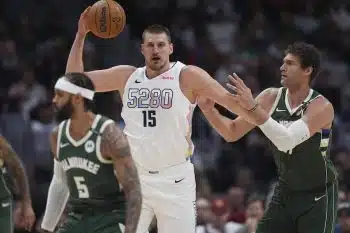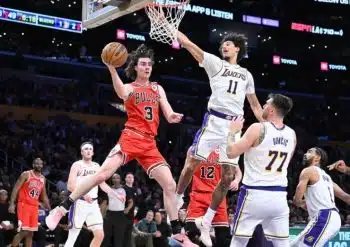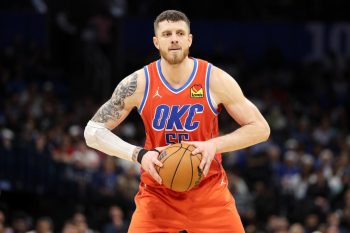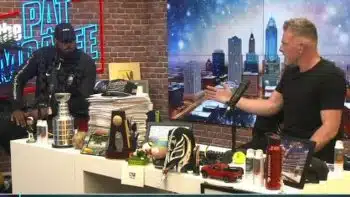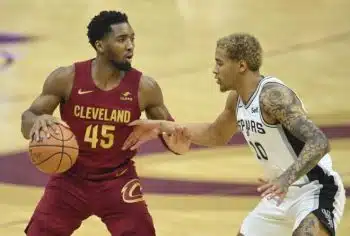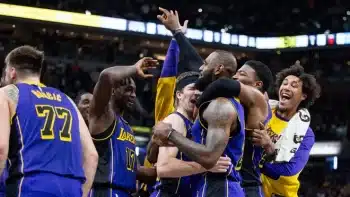NBA
NBA AM: Will The Kings Move Rudy Gay?
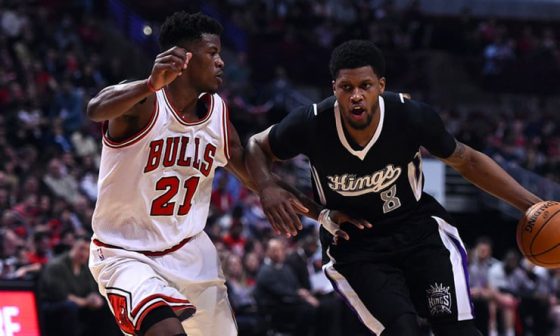
Moving Rudy Gay
For the better part of a week, Sacramento Kings forward Rudy Gay has been the topic of trade discussions and rumors around the NBA – with Gay being linked to more than half a dozen teams in some scenario or another.
While the Kings are very much open to making a change, there is a big caveat for Sacramento to actually make a deal: it has to return something of real value.
The Kings are, like a number of teams, sitting just on the bubble of the playoff picture. They are willing to move a significant player if the return in the deal ensures they can move up in the standings and seriously compete for a playoff berth.
The problem with moving Gay by himself is that he is owed $12.4 million this season, has $13.33 million owed next season and a player option worth $14.263 million in 2017-18, which is a huge cap problem for any of the teams looking at cap space in 2016.
Gay is not the only Kings players drawing interest in trade discussions, as swingman Marco Belinelli is also getting mentioned as a player the Kings would be open to moving. Belinelli signed a $19 million deal this past summer and is owed $6.06 million this season, $6.33 million next season and $6.606 million in 2017-18 – also a huge problem for teams with eyes for cap space in July.
The Kings are not trying to fire sale the roster by any means; in fact, the odds the Kings pull off a trade seems fairly small at this point in the trade cycle. What the Kings have done is made it clear to other teams they are open buyers and are willing to put significant salary on the table to pull off a big deal.
Combined Gay and Belinelli represent more than $18.46 million in tradable salary, giving the Kings the means to take on almost any contract in the NBA. So while on the surface it appears the Kings are trying to sell off some of their longer term deals, in reality they are hoping to be significant buyers if real talent hits the trade market.
The Options Are a Killer
There are two NBA players with player options in the NBA rumor mill that could be traded tomorrow if they decided their options today.
The beauty of the player option is it’s sort of injury or under-performance insurance. In the case of oft-injured Wolves guard Kevin Martin, he has a $7.37 million player option for next season. That option ensures if he gets injured, he’s covered for next year even though the common wisdom would be to decline the option and cash in on another multi-year deal under the ballooning salary cap. While that is the likely scenario, it not something Martin has to decide now, unless he wants a trade out of Minnesota.
There have been a number of stories suggesting that Martin would need to decline that option, in essence making him an ending contract, to get traded out of Minnesota. Sources close to the process in Minnesota paint the picture like this: There is a group of interested teams that would want Martin if he declines the option, but the larger, more serious group of teams at the table on Martin want him to opt-in to the option. The belief is that more interested teams would like to have Martin locked in for next season than to have him hit free agency.
Ultimately it’s up to Martin to decide if he’ll stay in his deal and be traded, or wait out the season in Minnesota and see what’s available to him as a free agent.
This one may come down to the wire, as Martin isn’t playing much of a role in Minnesota and if he wants to have value he may need to be traded elsewhere to play a role.
Lakers forward Brandon Bass is in a similar situation. His $3.135 million option is way below value, especially with the cap going up. However, with Bass playing such a minor role in L.A. and not necessarily posting big numbers when he does play, can he reasonably expect more than the $3.1 million he is owed?
League sources peg Bass the same way they do Martin. If he’d opt-in to his deal, he’d have more value and be easier to move as $3.1 million is a pretty favorable cap number next season – especially for a playoff team looking to bolster its bench with a proven veteran NBA big man. It’s the uncertainty of the option that alters the math, and like Martin there is a different set of suitors for the ending contract guy and the opt-in guy, with the teams seeking the opt-in willing to offer more value in a deal.
Both players have until late June to decide on their option years, so the question becomes can their existing teams persuade them to make an earlier decision or do both handcuff themselves where they are because of the uncertainty?
Both players’ futures could come down to the deadline and be very dependent on where they are being traded too.
Out with Hornacek
The Phoenix Suns tried to make it work with Jeff Hornacek – at least that’s how they will frame it when they address the decision they made last night to fire Hornacek, who was in the final year of his contract.
The Suns opted not to pick up their team option on Hornacek, making him a lame duck coach this year. In late December, the Suns management met privately with the players and opted to fire two of Hornacek’s assistant coaches Jerry Sichting and Mike Longabardi (now with the Cavaliers). The message at that point was the team felt a change was needed but had faith in Hornacek. That faith apparently ran out last night.
There is no questioning that the Suns botched all of the coaching decisions this season. Going forward for the balance of the season, it seems that one of the new assistant coaches Corey Gaines or Earl Watson will be taking over – a final decision has not been announced as of this story.
There continues to be speculation among league sources that Suns owner Robert Sarver may be more open to bigger franchise changes that could include the exit of not only President of Basketball Operations Lon Babby, who was planning to step into an advisory role this upcoming summer, but also the future of General Manager Ryan McDonough.
Suns sources have said the feeling around the team is that McDonough is likely safe in the medium-term, however there is expected to be a top down review of the entire franchise and ultimately decisions will come from that.
The Suns have $59.96 million in guaranteed salaries next season, giving them what could be as much as $30 million in usable salary cap space. If the Suns can find a way to move Markieff Morris around the trade deadline and get some ending contracts in the deal, that number could go up.
The Suns have a number of attractive young players on rookie-scale deals including T.J. Warren, Archie Goodwin and Devin Booker.
The 2016 NBA Trade deadline is February 18 at 3 p.m. EST; it will be interesting to see how the Suns play this deadline with so much chaos surrounding the team.
More Twitter: Make sure you are following all of our guys on Twitter to ensure you are getting the very latest from our team: @stevekylerNBA, @AlexKennedyNBA, @LangGreene, @EricPincus, @joelbrigham, @SusanBible @TommyBeer, @MokeHamilton , @jblancartenba, @eric_saar and @CodyTaylorNBA .
